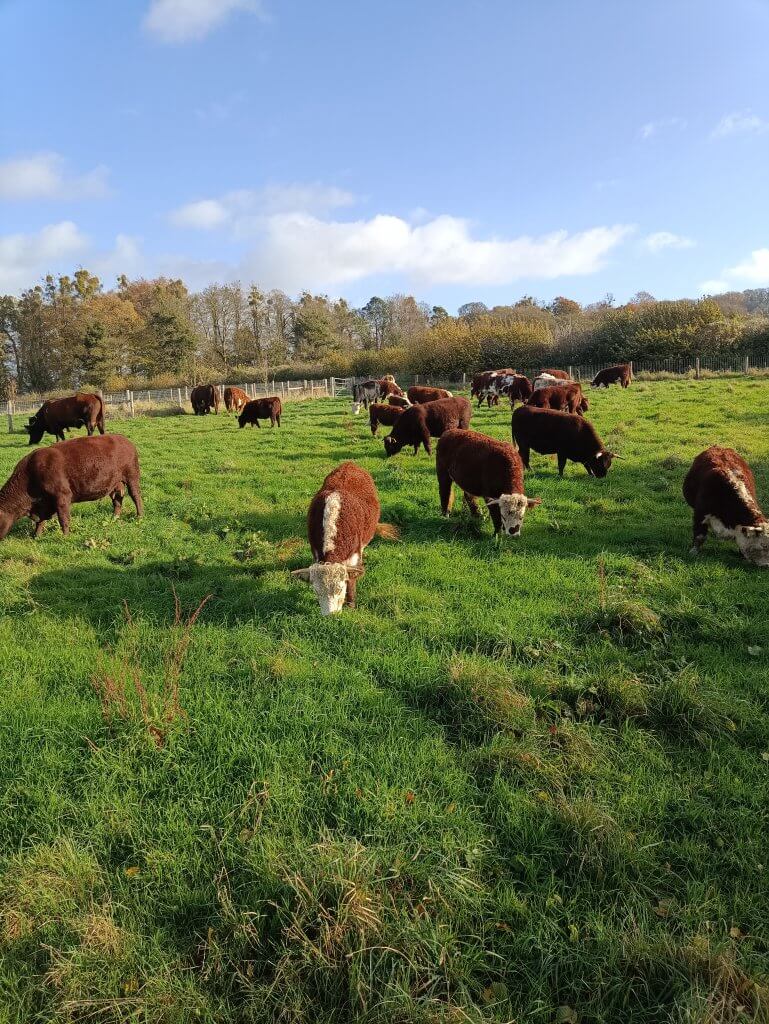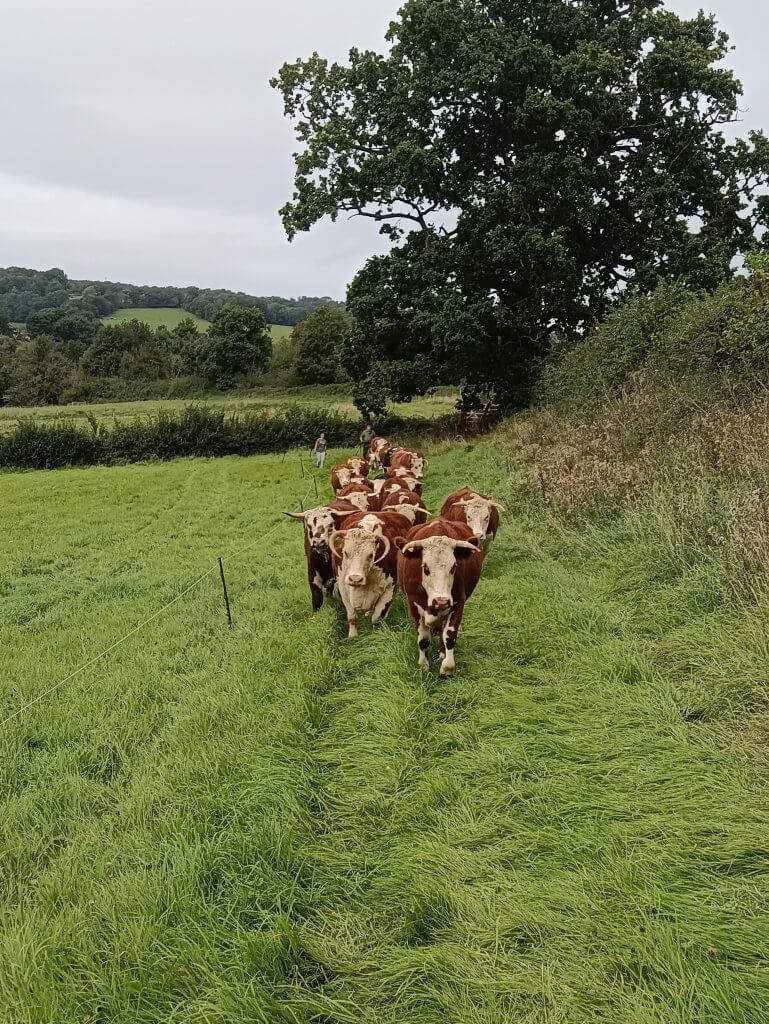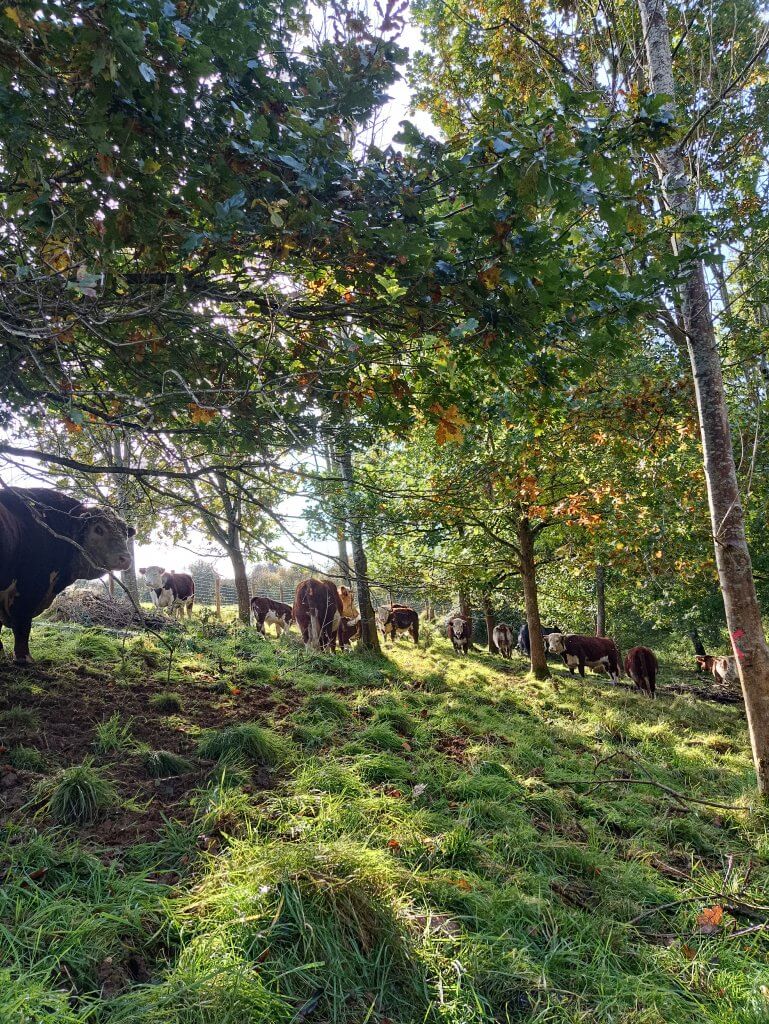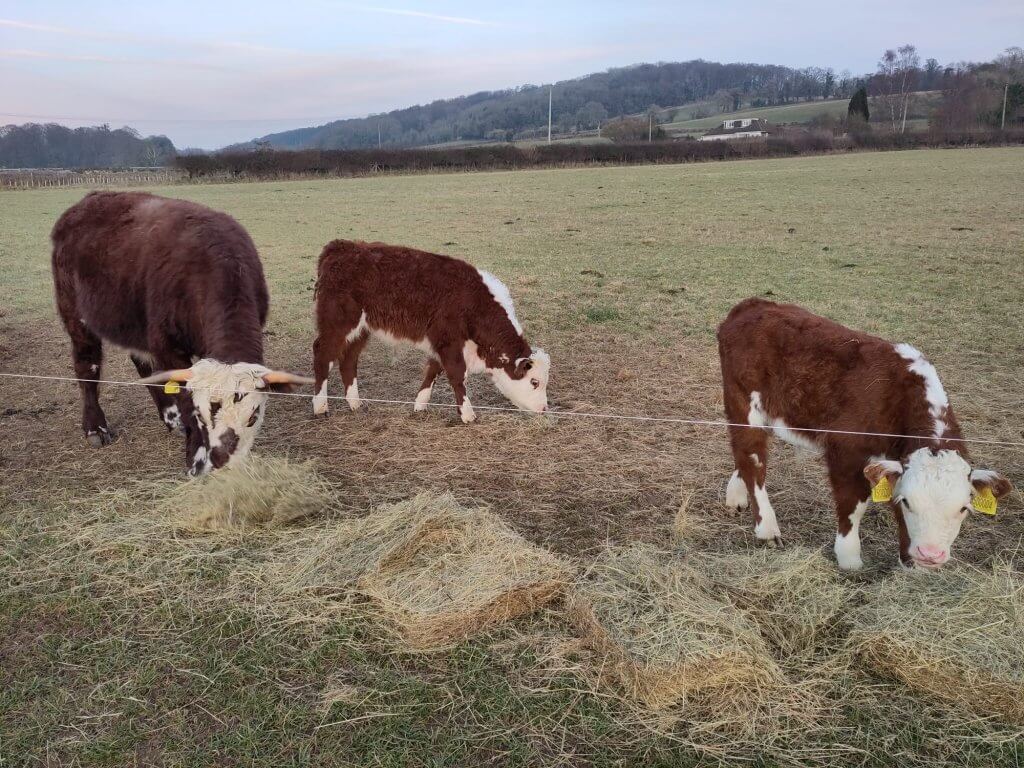Our Cows

Matt looks after our mixed herd of cows. We believe that diversity goes hand in hand with resilience – and hope our herd will fare well in the ever-changing climate. The cows are moved daily, emulating their natural rhythms as well as improving the fertility of the land and sequestering more carbon. Matt will be starting an organic chicken egg enterprise this spring, adapting similar principles to benefit the soil while giving the chickens diverse opportunities to forage.
Cows & Pasture
Our livestock journey started back in March 2022 with five Hereford cows from Stroud Community Agriculture. Now our happy herd fluctuates between 36 and 48. Our stock is mainly Herefords, with some Beef Shorthorn-Parthenais crosses and traditional Sussex. Enjoying almost 70 acres of pasture, our cattle have a varied foraged diet and especially like grazing along the alleys between tree crops. The herd stays outside all year and is never grain-fed or routinely fed antibiotics.

Regenerative Grazing
We are certified by Pasture for Life and follow their principles. We mob-graze our herd, moving them sometimes several times a day. This method of grazing aims to increase the carbon content of the soil and to improve the fertility of the land, as well as the life both above and below ground. We keep our cattle out over winter and are slowly working towards a calving season starting in March, in line with the animals’ natural rhythms. For more information about our grazing strategy see here and for the benefits of pasture-fed beef see here.

Our Pasture for Life Beef
Our Pasture for Life certified, regeneratively grazed beef is now available to buy. We believe that this product is a real superfood that will deeply nourish your bodies. Order your beef box here. We also have our own biltong and tallow.

